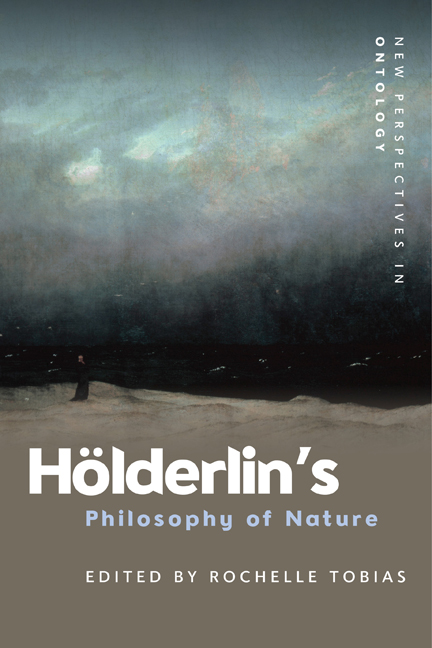11 - Nature, Nurse, Khôra: Notes on the Poetics of Hölderlin's Ode ‘Man’
Published online by Cambridge University Press: 08 October 2020
Summary
The ode ‘Man’ [Der Mensch] is not one of Hölderlin's most frequently discussed poems. Hölderlin sent it to Schiller in June 1798 along with a few other poems, but Schiller decided not to publish it. Of the poems that Hölderlin wrote in the late 1790s, ‘Man’ remains largely unnoticed. The interpretation that I will offer here aims to show, among other things, not only that the poem anticipates the late Hölderlin's natural philosophy, but also that the inherent tension of the ode as an experiment in language prepares the way for the poetics of the late phase.
The first preliminary version of the poem exists in the form of a draft written around 1797 that bears the title ‘The Birthday of Man’ [Der Geburtstag des Menschen]. This draft was created around the same time as the draft of another dramatic ode Empedokles about the Greek philosopher who threw himself into the volcano of Mount Etna. As a result of the historical proximity of these two drafts, Empedocles’ death appears close to the birth (or birthday) of man, a birth that the poem presents in a cosmogonic context since it accompanies the birth of the habitable Earth, the self-generation of Earth as the place of life. And while Empedocles jumps into the volcanic crater of Mount Etna, the poem about the birth of man opens with the sudden rise and emergence of an island out of the ocean – that is, with a volcanic activity emerging from the ground that nevertheless remains ungrounded and unfounded.
A sudden eruption – the special insular place (‘the loveliest island’) that is being prepared for the birth of man is the product of volcanism. This is how the long and fragile sentence that initiates the discourse of the poem unfurls itself with interruptions like deposits of words.
The opening of the draft speaks about the mountain peaks. The peak of a volcanic mountain is a special place that might shatter and explode again just as suddenly as it came into being. The peak, the place, trembles, reduces itself to rubble and spills over – and so it is born again. This way of presenting the question of the place as the place of trembling and shaking should call our attention to a possible wide-reaching intertextual reference to Plato's Timaeus.
- Type
- Chapter
- Information
- Hölderlin's Philosophy of Nature , pp. 199 - 218Publisher: Edinburgh University PressPrint publication year: 2020



